Nutritionists and medical professionals typically include fruits and vegetables among the most healthy foods that people and their canine friends can eat. Produce products often contain large amounts of nutrients capable of helping both the human and dog body function and ward off illness. That said, pet parents must remember that their dog’s digestive system differs from theirs. Read a comprehensive list of 10 fruits and vegetables that dogs cannot eat.
Fruits
Avocado
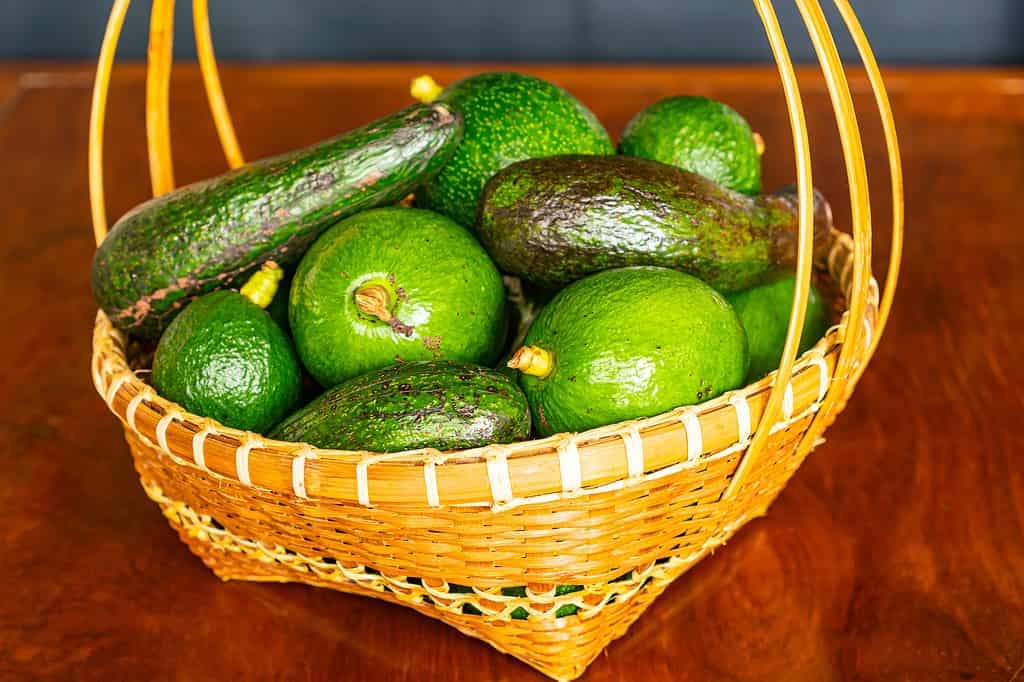
Avocado contains a chemical known toxic to dogs.
©takepicsforfun/Shutterstock.com
Dogs must never consume avocado. This fruit often served in salads, as a dip ingredient, and to compliment sandwiches possesses a substance known as persin. Even the slightest ingestion of this chemical usually results in digestive issues like nausea and vomiting. The consumption of larger quantities may lead to death.
More significant levels of persin appear in the avocado’s skin. Therefore, the most serious reactions occur when a dog eats that part of the fruit.
Cherries
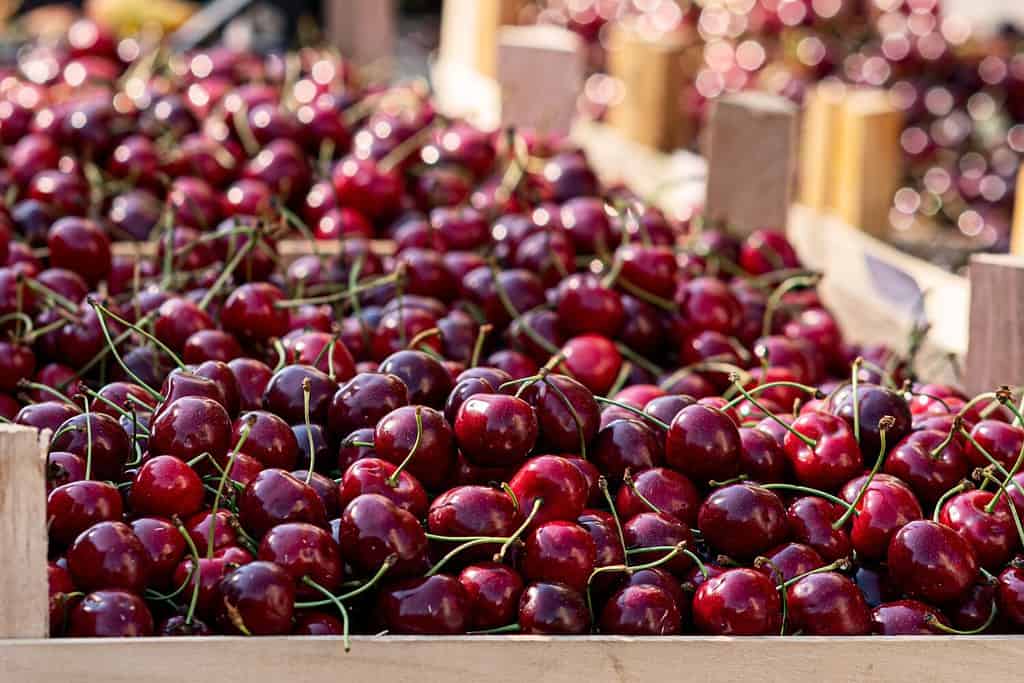
This fruit possesses small amounts of cyanide.
©Andrey Mihaylov/Shutterstock.com
Cherries contain tiny quantities of a dangerous chemical called cyanide. The ingestion of even one or two of these pitted fruits typically results in significant cases of diarrhea and vomiting. However, dogs consuming larger amounts stand at an increased risk of cyanide poisoning capable of leading to breathing difficulties and possibly even death. Dogs that have consumed cherries require swift and aggressive veterinary care.
Peaches
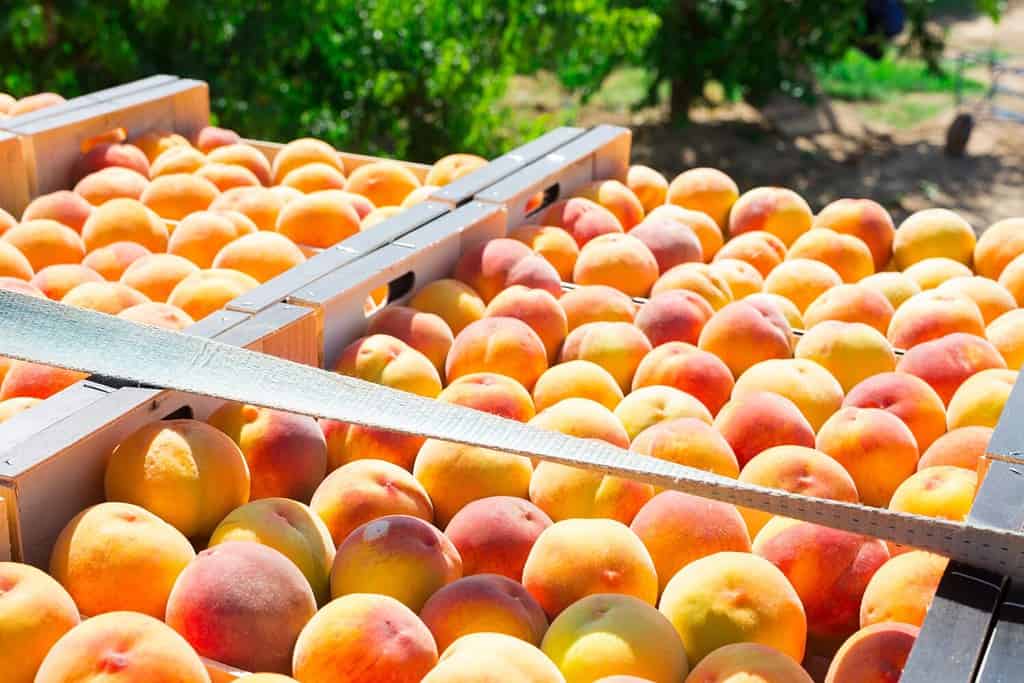
Pitch pits possess notable quantities of cyanide.
©BearFotos/Shutterstock.com
The fruit of the peach is not harmful to dogs. That said, a peach pit contains measurable levels of cyanide. Therefore, pet parents known to enjoy peaches must promptly discard the fruit’s pit and keep said trash far out of their dog’s reach. Other pitted fruits like plums also contain cyanide. Ergo, similar precautions should be taken when consuming them.
Lemon

Lemons contain chemicals capable of causing serious organ damage in dogs.
©iStock.com/PJjaruwan
The common citrus fruit often used to enhance the flavor of many foods and beverages possess high quantities of citric acid. When dogs ingest significant levels, their risk of nervous system depression occurs resulting in symptoms such as tiredness, coordination issues, and possibly even a loss of consciousness.
Additionally, lemon holds notable levels of chemicals like linalool and limonene. The ingestion of measurable amounts of these substances carries the risk of liver damage and potentially liver failure.
Grapes
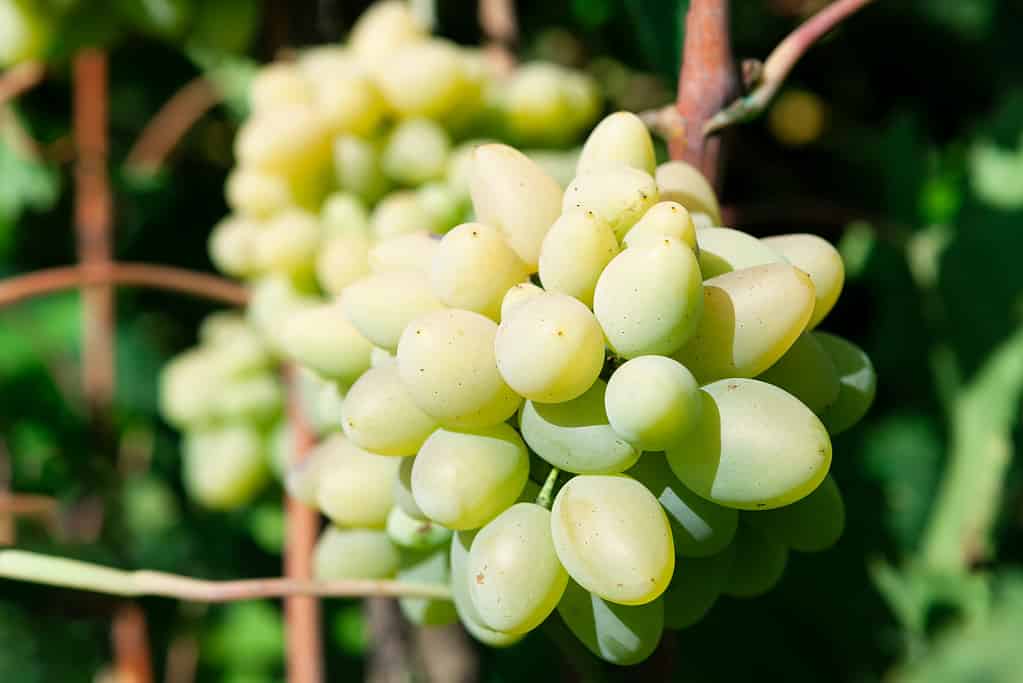
These popular fruits are extremely toxic to dogs.
©RussieseO/ via Getty Images
Though researchers have not yet been able to identify the specific reasons, grapes and their dried cousin raisins prove quite toxic to dogs. As few as one or two often result in digestive issues and other potentially serious problems. Therefore, grape or raisin consumption should prompt an immediate visit to the vet.
Tomatoes
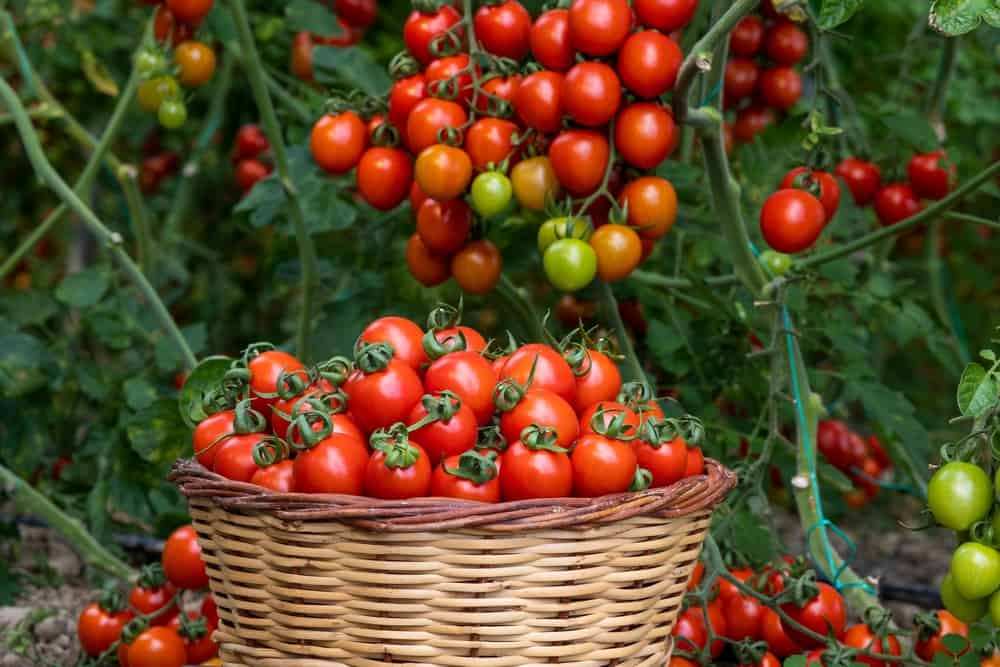
This fruit used in countless foods and beverages contains a dangerous chemical known as solanine.
©sadecestock/Shutterstock.com
Unfortunately, tomatoes possess notable quantities of solanine. When dogs consume this substance in large amounts, symptoms like digestive disturbances often ensue. Should extremely significant levels be ingested, potentially life-threatening issues like an irregular heartbeat might result.
Pet parents must realize that any product containing tomatoes must also be avoided.
Vegetables
Onions
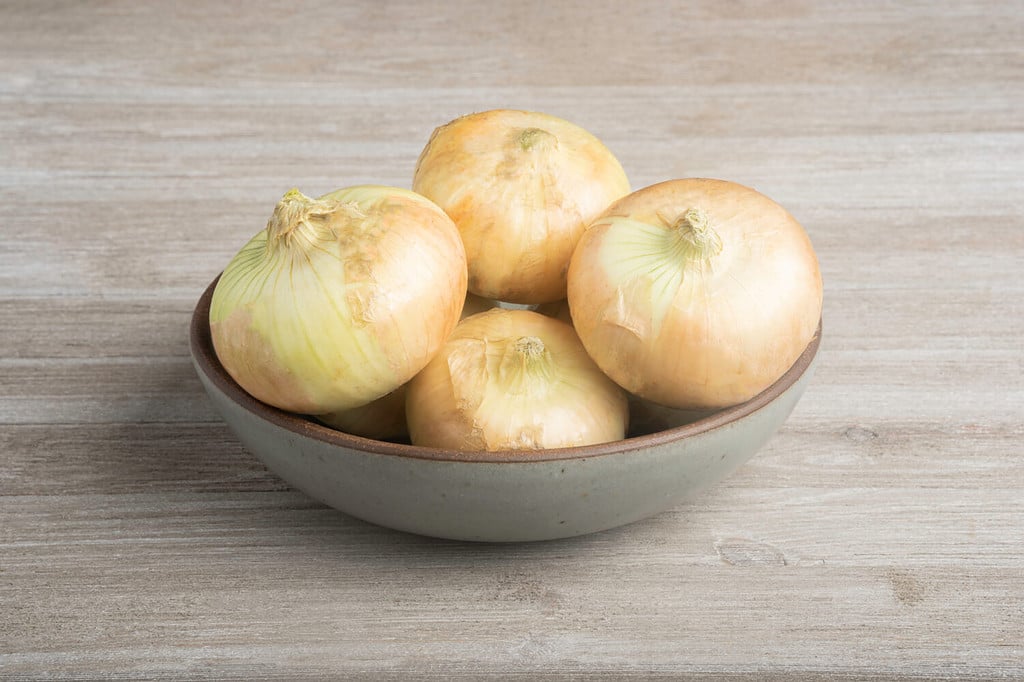
Onion consumption proves dangerous to dogs.
©Dominique James/Shutterstock.com
Dogs must never eat onions. These products contain a chemical labeled N-propyl disulfide. When ingested in large amounts, this chemical causes red blood cell destruction. If this problem progresses, a serious medical condition known as anemia often results. The cells and tissues of dogs stricken with this illness do not receive enough oxygen-filled blood. In dogs, symptoms include:
- Fatigue
- Weakness
- Shortness of breath and panting
- Weight loss
- Bleeding
- Unusual bruising
In severe cases, issues like pale gums and breathing difficulties may occur. Pet parents must also be aware that products containing onion flavor like onion powder carry the potential to cause similar concerns. Therefore, their fur babies must not be fed any edible product containing the vegetable or products containing it. Moreover, similar vegetables like chives pose the same threats and should not be fed to a dog.
Garlic
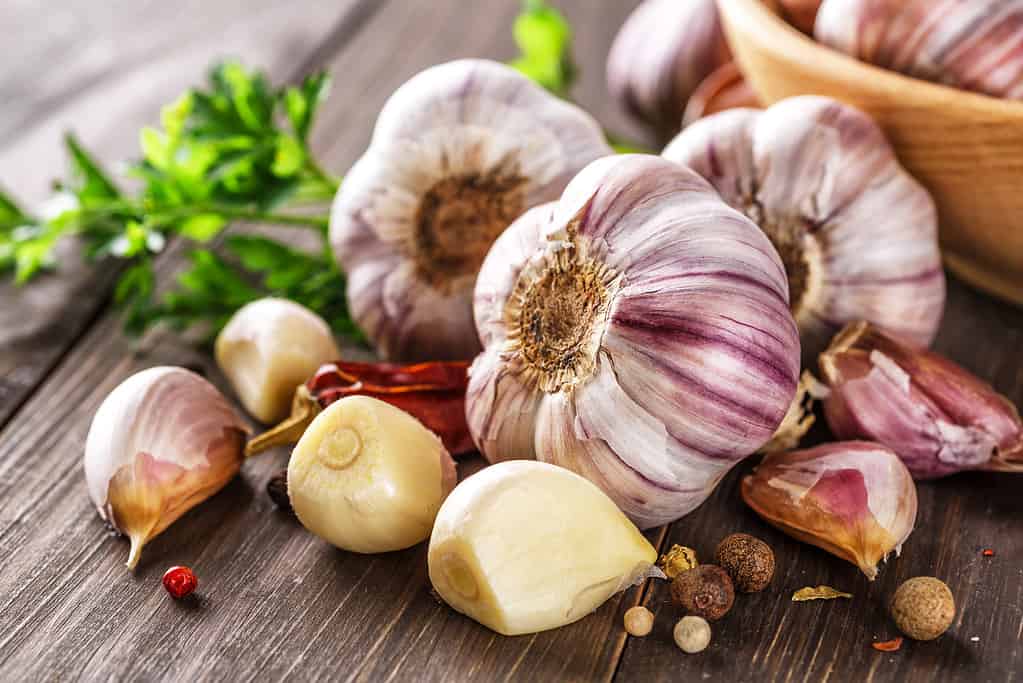
Garlic poses similar risks to dogs that onions do.
©IURII BUKHTA/iStock via Getty Images
The pungent bulb plant and products made from it like garlic salt and garlic powder weaken and ultimately destroy a dog’s red blood cells. The ingestion of even tiny amounts could prove harmful to canines.
Leeks
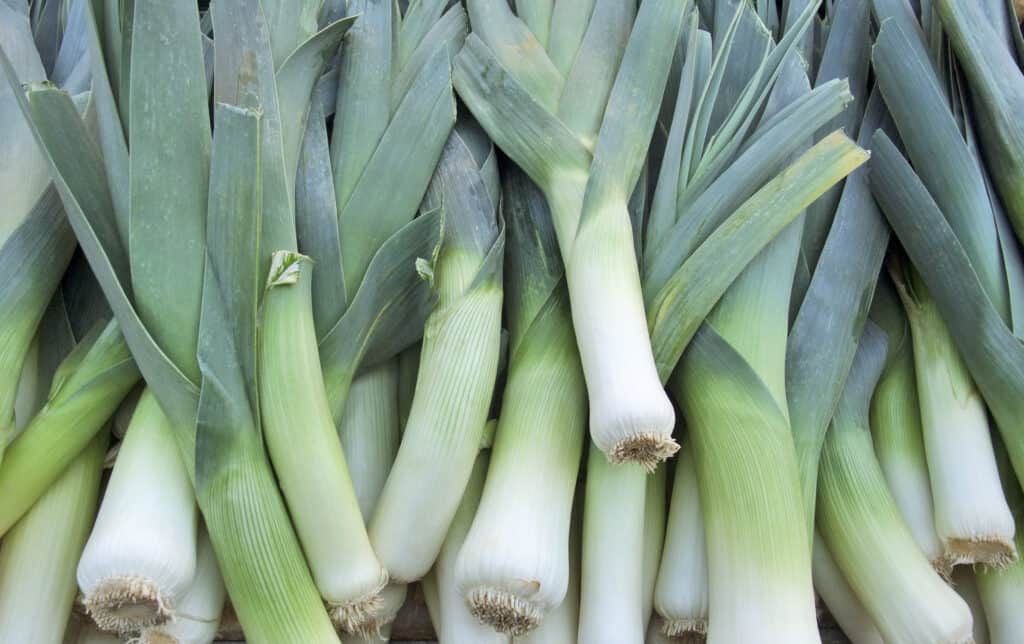
Leeks are allium plants like onions and garlic.
©iStock.com/prill
Like onions and garlic, leeks hold membership in the allium family of plants. Therefore, consumption of them by dogs increases the furry friend’s chances of developing anemia.
Wild Mushrooms
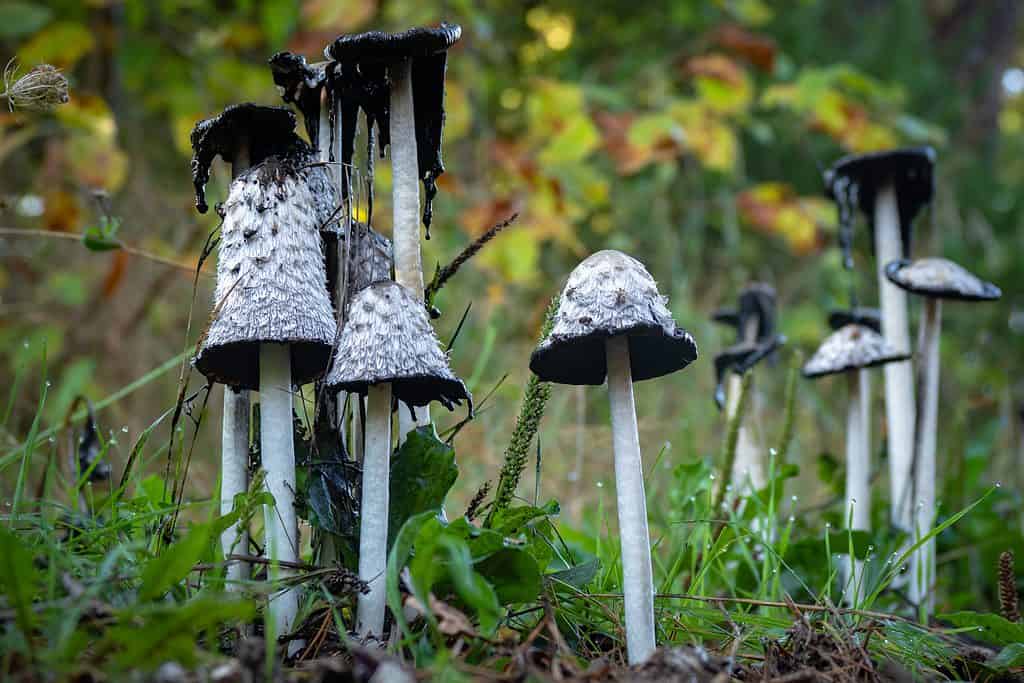
Many wild mushrooms contain chemicals toxic to dogs.
©Mike Workman/Shutterstock.com
Responsible pet owners will prevent their dogs from consuming wild mushrooms found in backyards and wooded areas. A solid percentage of these products contain toxins capable of causing significant illness or even death to canine companions.
What if a Dog Ingests One of These Produce Products?
Veterinary professionals urge dog owners to seek care immediately. One must remember that food toxicity symptoms do not always appear in the minutes or hours following ingestion. In certain instances, symptoms take days to show up. By that time, serious underlying problems might be afoot.
The dog’s veterinary care provider will perform a thorough examination including tests if need be. Moreover, addressing the problem at its earliest possible stage makes the issue easier to effectively treat.
Summary of 10 Fruits and Vegetables that Dogs Cannot Eat
| Produce Product | Toxic Impact on Dogs |
|---|---|
| Avocado | Severe digestive system upset |
| Cherries | Cyanide poisoning |
| Peaches (Pits) | Cyanide poisoning |
| Lemons | Nervous system depression and liver problems |
| Grapes/Raisins | Researchers unsure |
| Tomatoes | Gastrointestinal problems and heartbeat irregularities |
| Onions | Red blood cell damage and anemia |
| Garlic | Red blood cell damage and anemia |
| Leeks | Red blood cell damage and anemia |
| Wild Mushrooms | Digestive system issues and other potentially serious concerns |
The photo featured at the top of this post is © iStock.com/humonia
Thank you for reading! Have some feedback for us? Contact the AZ Animals editorial team.






